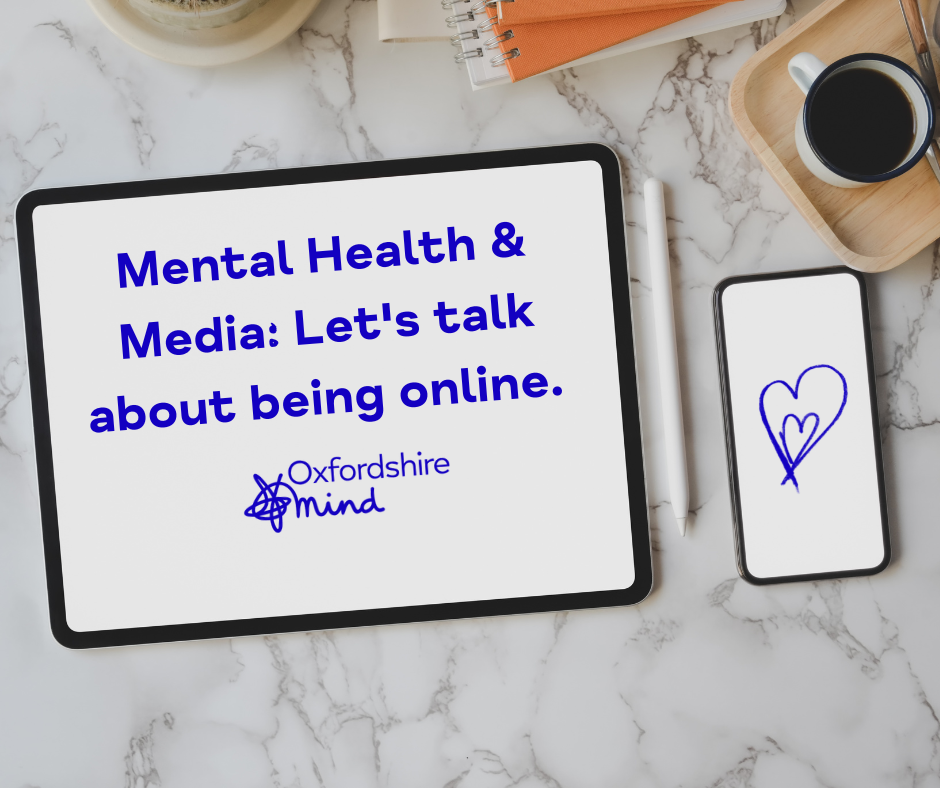We’re going to cover what being online means for your mental health. We’ll discuss how being online can help us connect with others, and how it can also cause a lot of anxiety or strain. We’ll look at what works for different people and how we can find balance in a constantly changing landscape.
What does it mean to be online?
The internet is a vast and expanding hub of activity, resources and information. Anyone with a device and an internet connection has the ability to search for anything their brain can think of. It has changed the way we share and process information and allowed us to have access to data from across the world.
How can we find trustworthy information?
With the increase of sources, it also means we have to work harder to sort and filter reliable and accurate information. It’s best practice to ask ourselves when reading anything online:
- Who wrote this and why?
- Does it come from a reliable source?
- Are they writing with a particular bias or agenda?
- When was it written?
- Does it contain any facts with references and data or is it opinion?
- Is it relevant to you?
How can we use the internet to benefit our mental health?
Finding help: Whether you need to access treatment with your GP or look for support from a charity or private practitioner using location searches and key phrases it’s possible to find help near you at the click of a button.
Campaigning and speaking up: It’s much easier to raise awareness surrounding different topics and issues, we can talk about our own experiences and share news and ideas with our communities. This can have a positive effect in encouraging people to talk about their mental health, share their stories and create support networks for people that may be suffering.
Expression: Creativity online is endless, it can be done through art, video, music, photography, blogging, creating communities or chatrooms and so much more. It allows us to find safe spaces to express our interests, thoughts and feelings with others, especially if they share the same passion for an activity or topic as us.
Leaning: Whether it’s reading other people’s experiences or finding research papers on a specific topic, we can learn so much about ourselves and our mental health by having endless resources online to learn from and discover.
Peer Support: If you are not able to find support at home, in school, at work or in your daily surroundings, connecting with other people online can be an important outlet for you to find peer support.
How the internet can make mental health worse
Now we flip the coin and look at the aspects of being online that can have a negative impact on your mental health.
Loneliness: Some users find that social media and online communities actually exacerbate their feelings of loneliness rather than making them feel connected. If you find yourself feeling more isolated and alone after being online, then seeking face-to-face support could be the best option for you. Try a peer support group, a local walking group or join an activity/club that interests you. You can also seek in-person counselling.
Anxiety and Stress: social media and apps have been designed to keep us hooked, scrolling and checking our notifications. This can lead to constant checking of our phones and computers to stay “up-to-date” or check what our friends and family are up to or comparing our life to others. If you notice your devices are causing you to have negative thoughts and emotions, it might be time to look at managing and monitoring your usage.
It’s all too much: Maybe you’re in a relationship where they’re messaging you constantly for reassurance of support, or maybe you’re supporting a friend through a tough time. But being at the end of your device constantly reacting to that ‘ping’ every time a new message comes through can be draining. Are you feeling overwhelmed? Take a break and set boundaries.
Am I enough? Media is telling us 100s of stories at one time, all from the very best angles. Not many people want to look bad online, so we end up with people who look like they’re living perfect lives flooding our apps. And this makes us question our ‘not Instagram perfect’ lives and compare ourselves and our situations with others.
But the comparison is the thief of joy, and you shouldn’t compare yourself to others. If you’re constantly fuelling yourself with negative thoughts and comments because you don’t think you’re as good as, or enough, this is not healthy, and you don’t deserve to feel that way. Try to change the way you use media or take a break completely.
Impact on sleep: It has been proven that not only does the light from our devices keep us awake but absorbing that much fast and constantly changing information just before we go to bed makes it very hard for us to fall asleep. It also ruins our quality of sleep. Most doctors and sleep therapists recommend not using your devices 1-2 hours before getting into bed, to allow your mind and body to wind down.
How can I try to make the internet work for me and my mind?
There are a variety of things you can do to control your use of the internet and being online. Here are our tips.
1. Does this app/site make me feel good?
Do you open an app or site regularly and feel worse each time you exit it, even after you’ve been scrolling for hours. This is the biggest sign that we are developing an unhealthy habit and attachment to something that is not serving us or our needs well.
2. What do I want?
Make a plan. What are you looking for? Know what you need to find, why you are online and filter your resources and information to help you answer your questions. This will help you avoid spending hours scrolling without finding what you wanted to start with.
3. How am I feeling?
If you are feeling particularly vulnerable or are struggling with something that can be triggered or affected, then staying offline for a while might be helpful for you to take time and recover.
4. Is this a healthy community?
Are you sharing your area of a platform or space with people that share your values and goals? Are those values and goals making you feel happy and healthier? Is the community you’ve found online helping you to be happy and stable. We hope so, if not maybe it’s time to seek new waters.
5. How much energy do I have?
Do you find that being on certain sites or apps drains your energy? If the answer is yes, then before you decide to use these services check-in with yourself and see if you have the energy to support this, and ask yourself why do you find these interactions so draining?
6. How is this moderated?
Some sites have more moderation than others, some communities have rules and each publisher has their own set of guidelines and reporters. Find sites, apps, resources and information that you trust and are less likely to trigger you with damaging or thoughtless communication. Especially if you find particular topics cause you to spiral and lose control of your emotions. It’s okay to shield yourself whilst you take time to heal. Nobody has the right to enter your personal space without consent, so put your boundaries in place to help you cultivate a more relaxing and convenient use of the internet.
Here to help
If you’re struggling with your mental health, try and talk to someone you trust. Oxfordshire Mind’s Information Service can provide you with free support, and access to local mental health services. Phone: 01865 247788, or email info@oxfordshiremind.org.uk.


